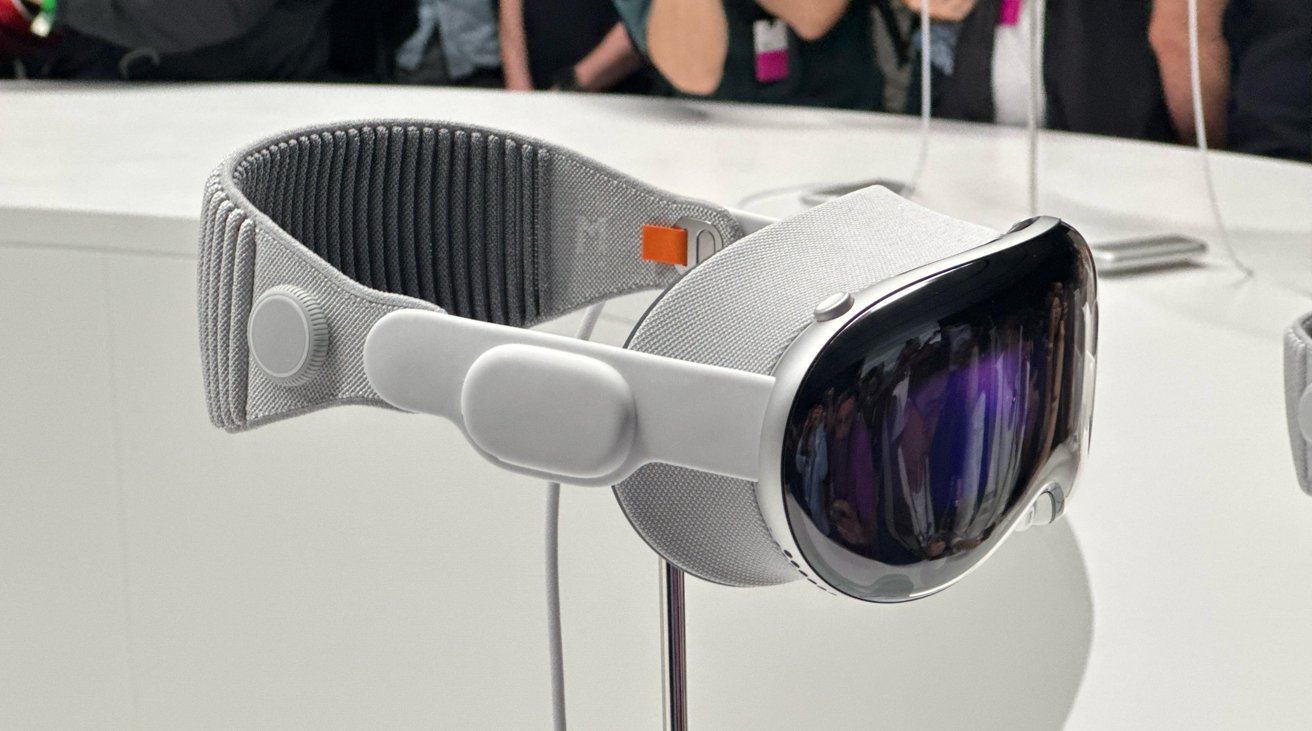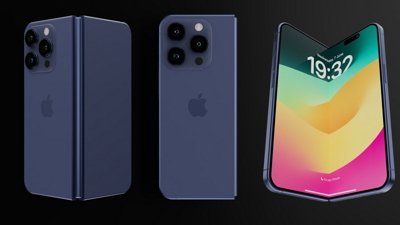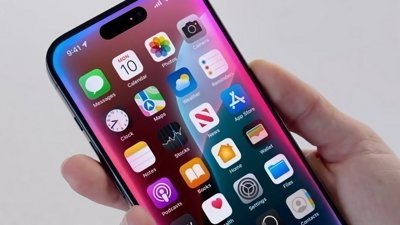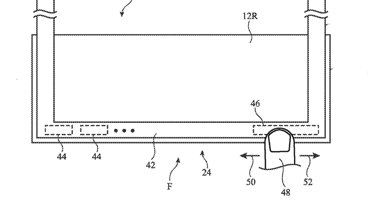To handle its multiple cameras without visible lag, Apple Vision Pro is to use a 1-gigabit DRAM chip, custom-designed to work with the headset's R1 chipset.
Apple's launch of the Vision Pro headset concentrated on use cases for it more than technical details, and little else will be known until the device goes on sale. However, Apple did say that there are 12 cameras, five sensors, six microphones — and a 12-millisecond lag.
Apple has said that this delay is eight times faster than the blink of an eye. Now according to The Korea Herald, a substantial part of that speed is because the headset will use a specially-designed DRAM chip by memory manufacturer SK Hynix.
Representatives of SK Hynix told the publication only that "we cannot provide comments related to our clients." However, as well as discussing the speed of the DRAM design, the unspecified sources also say that this company is to be the sole memory chip supplier for Apple Vision Pro.
Unnamed industry officials told The Korea Herald that the DRAM's design would help Apple's headset double the possible data processing speed of the device.
As well as having 1-gigabit DRAM capacity, the new design reportedly features an eightfold increase in the number of input and output pins. It's claimed that the DRAM will be attached to Apple's R1 chipset to become a single unit.
This appears to be an evolution of Apple's Unified Memory concept that it has been using with the M-series processor for some time. it's not presently clear, however, if the DRAM associated with the R1 is also connected to the M2 chip in the headset, or if that has its own RAM.
Apple's R1 chip is dedicated to processing inputs from the Vision Pro's large range of cameras and other sensors. It then works in conjunction with Apple's M2 chip, which is the headset's main processor.
SK Hynix is one of several memory manufacturing firms, several of whom have previously faced class-action lawsuits over alleged price fixing.
 William Gallagher
William Gallagher




-xl-m.jpg)


-m.jpg)






 Amber Neely
Amber Neely
 Andrew Orr
Andrew Orr



 Christine McKee
Christine McKee
 Chip Loder
Chip Loder
 Thomas Sibilly
Thomas Sibilly








7 Comments
Just another nail in the coffin as to why the price isn’t cheap, nor will there be a price drop anytime soon if ever, the AVP is a fully fledged Apple laptop/12.9 iPad Pro.
My bet is that Apple will have "Vision Air" for about $1500 after driving component costs down. Probably will remove a couple of the cameras, consolidate parts, change materials to reduce component costs. There will be some features removed, and I think Apple is just waiting on the first year to figure out what features are being used or what are not. R1 functionality could be integrated into an "M3" perhaps.
The trick is what display tech can they use that is cheaper than microOLED (is "OLED on Silicon" better?) and maintain 23m pixels?
End of 2025 perhaps.
The cameras and sensors are intriguing. Since the orientation of a headset is tied to a human head, not the most flexible platform for rotation, I wonder if the sensors will be square with software selectable rectangles (horizontal or vertical of different ratios) or square images. Support for flash synchronization would also enable unique capabilities. Furthermore, I wonder about the zoom ability. It would add to the value equation if Visions Pros could function as binoculars with heads up display. If the imaging system is insufficiently rich, then maybe an accessory imaging system could feed into the headset.